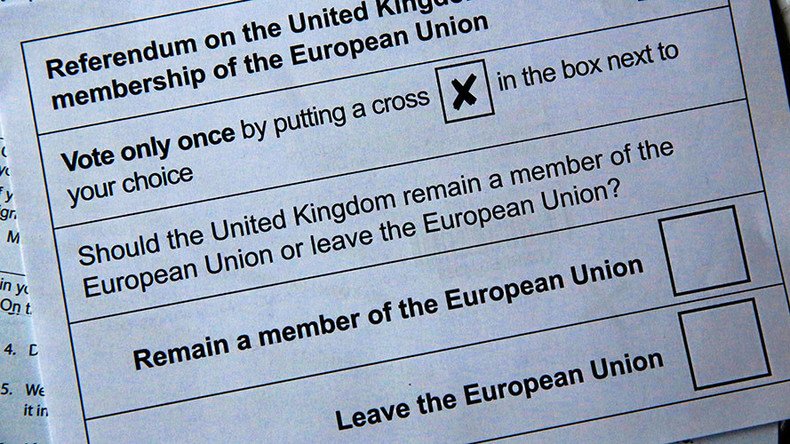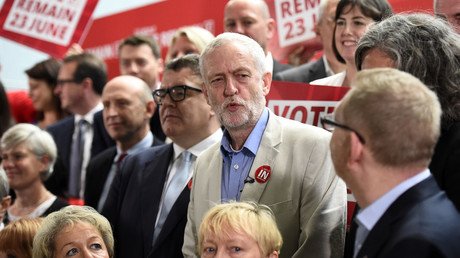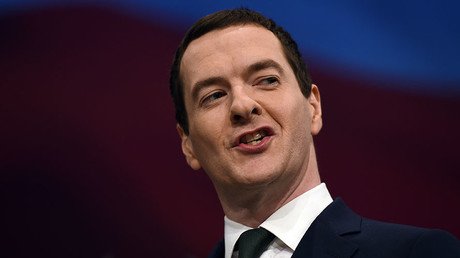Vote Leave unveils post-Brexit ‘roadmap’ as Remain camp warns of ‘decades of uncertainty’

Pro-Brexit Vote Leave has unveiled a blueprint for the UK to “take back control” if it decides to quit the EU in the June 23 referendum, as polls show momentum building for a Brexit.
Its “roadmap,” drawn up by leading Brexiteers Boris Johnson and Michael Gove, sets out six new laws the ‘Leave’ campaign intends to enact by 2020.
It includes an immigration control bill that would “end the automatic right of all EU citizens to enter the UK” and end the European Court of Justice’s control over British asylum policy by the next general election.
It says it would also introduce a bill which would allow the government to remove EU citizens “whose presence is not conducive to the public good” by ending the jurisdiction of the European Court of Justice.
The campaign says it would also bring in new legislation to collect more money for the National Health Service (NHS) and to restore the UK’s control over its own trade policy.
It also plans to push through a special finance law abolishing the 5 percent rate of value added tax (VAT) on household energy bills, which it says would be paid for by savings from the UK’s contributions to the EU.
“After we vote Leave, the public need to see that there is immediate action to take back control from the EU,” Leave campaigner and leader of the Commons Chris Grayling told the BBC.
“We will need a carefully managed negotiation process and some major legislative changes before 2020, including taking real steps to limit immigration, to abolish VAT on fuel and tampons, and to end the situation where an international court can tell us who we can and cannot deport.”
A spokesperson for Britain Stronger in Europe is warning a Brexit would mean a “decade of uncertainty that will risk jobs, risk investment and lead to higher prices in the shops” as Britain attempts to separate itself from Brussels.
“The Leave campaign does not have a credible plan for Britain’s future – all they offer is a leap in the dark that will put our economy at risk,” he told the BBC.
In the case of a Brexit vote, there has been speculation Prime Minister David Cameron would immediately serve notice of Britain’s intention to leave the EU under Article 50 of the Lisbon Treaty, which sets a two-year timetable for negotiations, according to the Telegraph.
Meanwhile, 57 Tory MPs have pledged to vote down Chancellor George Osborne’s post-Brexit budget if Britain left the EU, which could see the government collapse.
Osborne last night warned that in the case of a Brexit, he would have to raise the basic income tax by 2 percent, raise the higher rate by 3 percent and inheritance tax by 5 percent.
He also pledged £2.5 billion (US$3.55 billion) in cuts to the NHS budget, defense spending reductions of £1.2 billion, and education cuts of £1.15 billion.
He said the budget was necessary to plug a “black hole” in the public finances that would open up in the event of a Brexit.
“The point is the country does not have a plan if we quit the EU. We’d wake up in just over a week’s time with no economic plan for our country, with years of instability,” he told the BBC on Wednesday.
RETWEET if you're shocked that Osborne is threatening the British people with cuts if we don't vote his way. pic.twitter.com/kHEBn1TdkS
— Vote Leave (@vote_leave) June 15, 2016
But Sky News reports that 57 Conservative MPs have signed a letter refusing to back the cuts, raising the prospect of the government collapsing, because budgets are treated as so-called “confidence votes” in the competence of the administration.
With a narrow majority of around a dozen MPs, the chancellor would almost certainly be unable to pass a budget, according to the Independent.















